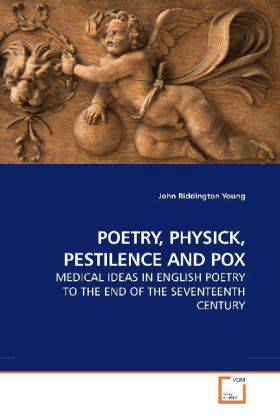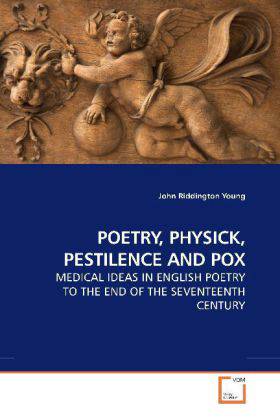
Je cadeautjes zeker op tijd in huis hebben voor de feestdagen? Kom langs in onze winkels en vind het perfecte geschenk!
- Afhalen na 1 uur in een winkel met voorraad
- Gratis thuislevering in België vanaf € 30
- Ruim aanbod met 7 miljoen producten
Je cadeautjes zeker op tijd in huis hebben voor de feestdagen? Kom langs in onze winkels en vind het perfecte geschenk!
- Afhalen na 1 uur in een winkel met voorraad
- Gratis thuislevering in België vanaf € 30
- Ruim aanbod met 7 miljoen producten
Zoeken
POETRY, PHYSICK, PESTILENCE AND POX
MEDICAL IDEAS IN ENGLISH POETRY TO THE END OF THE SEVENTEENTH CENTURY
John Riddington Young
Paperback | Engels
€ 48,45
+ 96 punten
Omschrijving
The terrible contagious disease, syphilis, which ravaged Europe in the 16th century takes its name from a hapless shepherd boy called Syphilus in a poem written by a doctor. Hitherto, it had been known as the French Disease. Medical References in Poetry furnish us with an insight of what the layman rather than the physician believed about contemporary ideas on anatomy, physiology and therapeutics. Whilst looking at these medical allusions, one can clearly see the revolutionary changes which were taking place in medicine between 1400 and 1700. The implicit faith in the unproven, ancient theories of Hippocrates and Galen can certainly be felt in the verses of Chaucer and his contemporaries. By the seventeenth century, however, that assurance has gone and poets appear extremely sceptical about the theory of humours and also medical astrology, once the two cornerstones of mediaeval medicine. Poetry gives us a clear view of popular ideas about the human body and its relationship to the rest of the universe. This book should be of equal value to both the historian of medicine and to all those with an interest in English poetry.
Specificaties
Betrokkenen
- Auteur(s):
- Uitgeverij:
Inhoud
- Aantal bladzijden:
- 224
- Taal:
- Engels
Eigenschappen
- Productcode (EAN):
- 9783639179163
- Uitvoering:
- Paperback
- Afmetingen:
- 150 mm x 220 mm
- Gewicht:
- 314 g

Alleen bij Standaard Boekhandel
+ 96 punten op je klantenkaart van Standaard Boekhandel
Beoordelingen
We publiceren alleen reviews die voldoen aan de voorwaarden voor reviews. Bekijk onze voorwaarden voor reviews.









